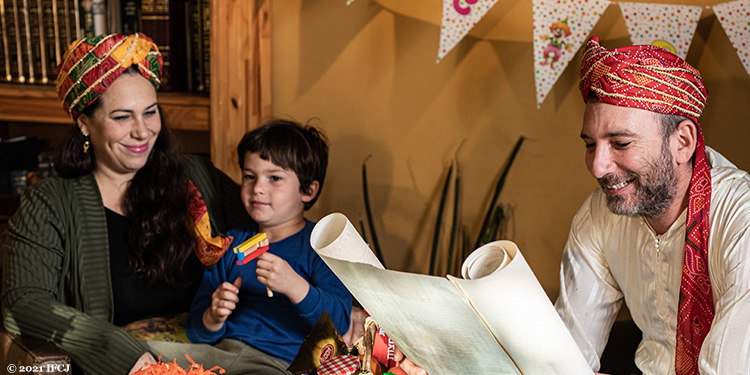See the Miracles!
Yael Eckstein | March 17, 2022

Therefore, these days were called Purim, from the word pur.) Because of everything written in this letter and because of what they had seen and what had happened to them… — Esther 9:26
Today through sundown, my family and I will join Jews around the world in celebrating Purim, a joyous holiday that commemorates the story of Queen Esther and her courageous stand that saved her people, the Persian Jews, from annihilation.
During the Gulf War, Israel was under steady attack from Saddam Hussein’s rockets. More than 11,000 homes in Israel were damaged in these attacks, as well as close to 4,000 non-residential buildings. Amazingly, only two people lost their lives from the rocket attacks.
Rockets hit buildings that were inexplicably empty. Parts of buildings with nobody in them would be destroyed, while the sections containing people remained intact. Missiles fell in open soccer fields. God’s providential hand of protection over Israel was clear for all to see.
One evening on the news, a reporter was interviewing an elderly woman who was unscathed after a missile destroyed most of her apartment building but somehow left her section untouched. When the reporter asked her to explain this obvious miracle, the woman cut her off: “Zeh lo nes! Zeh lo nes! This is not a miracle! This is not a miracle!” She was emphatic and raised her voice as she said it. Sadly, this woman, a secular Israeli, refused to see the miracle of God saving her from death.
See the Miracles
The Purim story teaches us to see the miracles that are all around us. Everything that happens in the Book of Esther seems to be the result of human decisions, of politics, and of good timing. There is no splitting of the sea or plagues upon the enemies of the Jews. It all looks natural, like good luck.
The message of Purim is that we need to pay attention and see the miracle, that there is no such thing as “good luck.” In fact, the word Purim means “lots,” because of the lots that Haman used to choose the day to annihilate the Jews. The holiday was named after this as a way of mocking Haman and saying, “There’s no such thing as luck.”
The Book of Esther is the only book in the Bible that does not mention God even once. But that is exactly the point. The lesson of the story is that sometimes God works behind the scenes. He doesn’t show Himself explicitly. It’s up to us to see Him.
Your Turn:
How can you see the miracles in your life? Make note of the hidden miracles in your life. Think about God the next time you think that you just “got lucky.”
